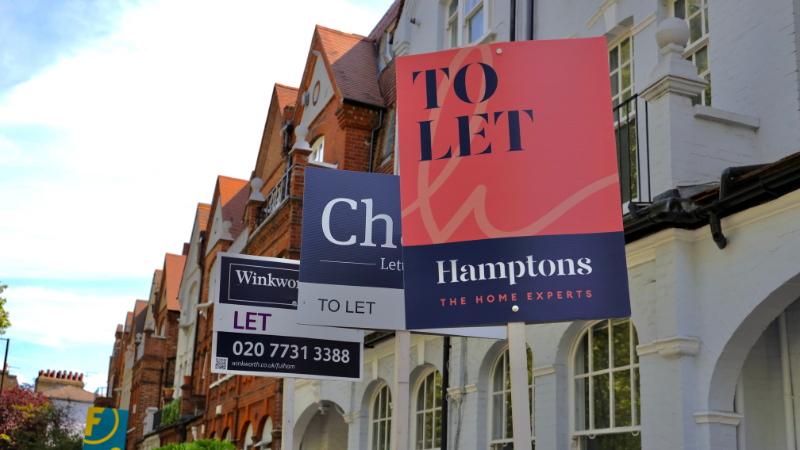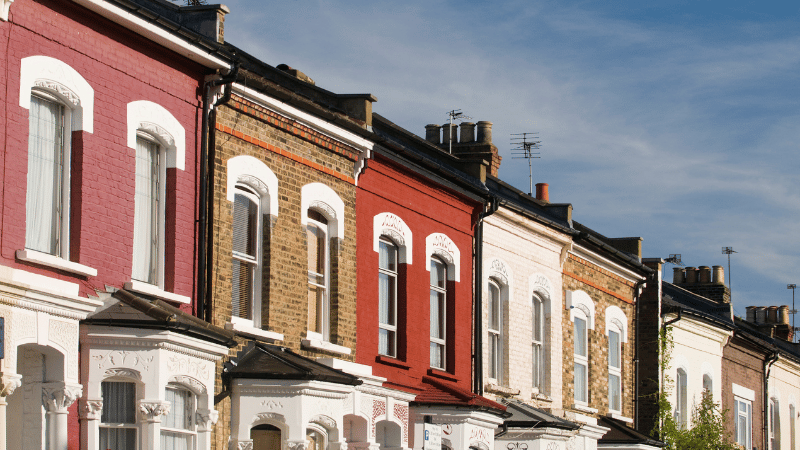Categories
NEWS: Are Mortgage Rates Going Up in Response to Interest Rate Hikes?

The Bank of England has raised the base interest rate to 4% on 15th December 2022 following their Monetary Policy Committee meeting - what does this mean for your mortgage?
In this post, we look at whether mortgage rates are rising in response to consecutive interest rate hikes in the UK.
With the BoE’s base interest rate now at 4%, it’s significantly higher than before the Covid-19 pandemic.
And as recently as December 2021, interest rates were at their record low of just 0.1%, meaning that in just 15 months we’ve seen 10 rate hikes in response to rising inflation.
The bank rate is now 40x higher than it was last December - so, what does it mean for your mortgage?
Why are interest rates going up?
Inflation has been rising steadily since April 2021, and the latest Consumer Price Index (CPI) rate is now over 10%.
With Russia’s war on Ukraine causing the price of oil to increase, the rising energy costs has seen inflation reach the highest rates in the Uk since March 1992.
Related: NEWS: How Could Russia's Invasion of Ukraine Impact the Mortgage Market?
Until inflation stops rising and gets closer to the BoE’s target rate of 2%, they'll likely keep raising the base rate to keep it under control.
Are mortgage rates going up?
The rate of interest set by the BoE determines two things:
- The amount of interest your bank pays you on your cash savings
- And how much they charge you for money you borrow (via your mortgage, for example)
Mortgage Advisers at Clifton Private Finance have already seen lenders updating their rates in reaction to the latest few interest hikes – mortgage lenders generally calculate the interest rates they offer in line with the BoE’s rate.
So, the higher the bank rate, the more expensive your mortgage will be. For more details on how this affects your payments, read our guide on how mortgage interest works.
If you're looking to remortgage soon, or you’re buying a new property, you could be looking at higher interest rates the longer you wait.
Can you protect your mortgage from high interest rates?
Your monthly mortgage repayments could go up soon if:
- You currently have a tracker mortgage
- You’re paying your bank’s standard variable rate (SVR)
If this is the case for you, we think it’s at least worth considering your remortgage options and thinking about whether a fixed-rate product could save you money in the long term.
But remember, tracker mortgages often have early repayment charges (ERCs) attached to prevent you from remortgaging before your term ends, so make sure to check all the details of your current policy before making a decision. Speak to a mortgage adviser if you’re unsure.
If you’re already on a fixed-rate mortgage, you have more time to react depending on your current term duration - the interest rate you’re paying will be fixed until your deal ends.
What if I’m taking out a new mortgage soon?
If you’re expecting to take out a new mortgage soon, acting quickly may secure a better interest rate if they continue to rise.
You may wish to consider taking out a fixed rate mortgage if you’re worried about interest rates continuing to rise over the term of your policy.
Typically, the longer your fixed term, the higher interest rates you’ll pay, as you're guaranteed your rate for longer.
For more help, read: Should You Get a Tracker or Fixed Rate Mortgage in 2023?
How early can I switch mortgages?
If you're looking to remortgage in light of recent interest rate hikes, it's important to know when you can take aciton.
Remortgaging too early can sting you with Early Redemption Charges (ERCs), but too late and you might be paying your bank's high rate SVR for longer than you want.
Watch our video on early remortgaging and how to get a better deal, below:
How do you get a fixed rate mortgage?
Many people choose to speak to a mortgage adviser when thinking about remortgaging or taking out a mortgage on a new property.
A mortgage broker has access to the whole of market and can compare rates on products from banks, building societies, and private and specialist lenders.
They can summarise all your options for a new or existing mortgage and outline the pros and cons of each policy. And, they can negotiate the best interest rates available to you while they're at it.
Give us a call
Contact us to arrange a convenient time for an in-depth first discussion with one of our trusted finance brokers and see how we can help:
0117 959 5094
Or click here to make an online enquiry with us.










